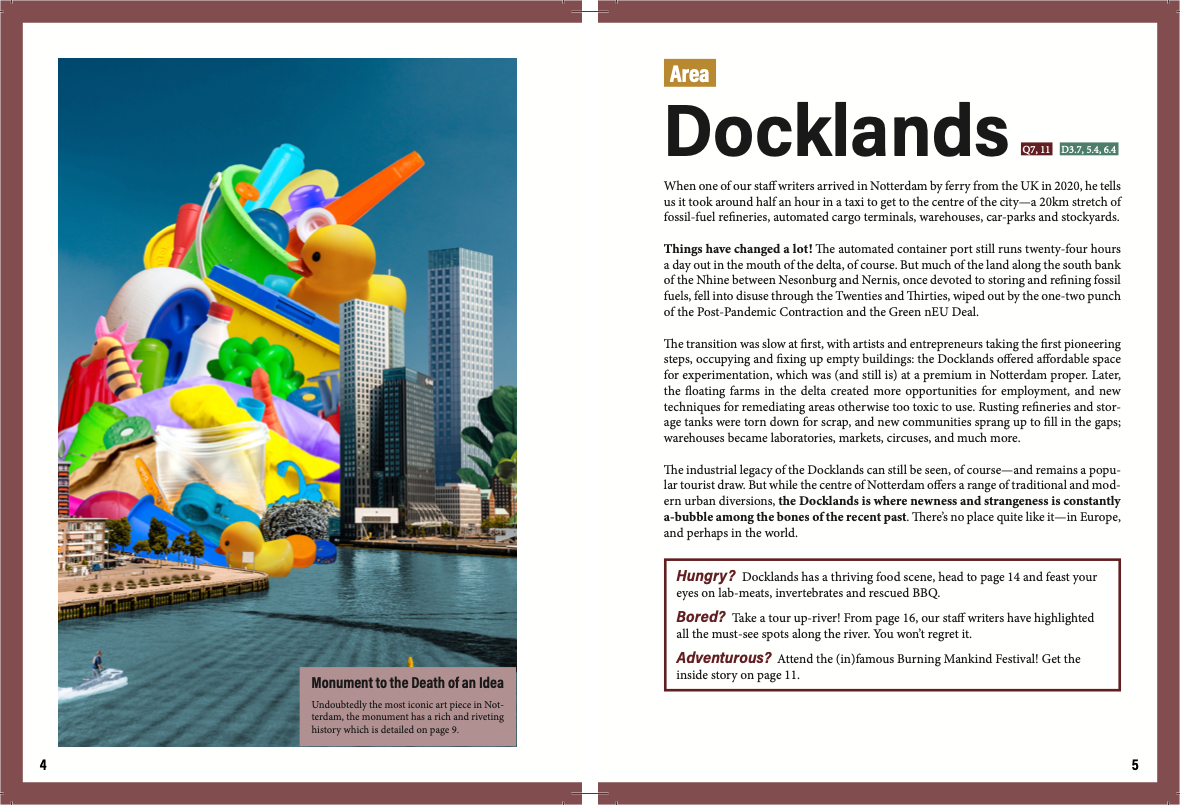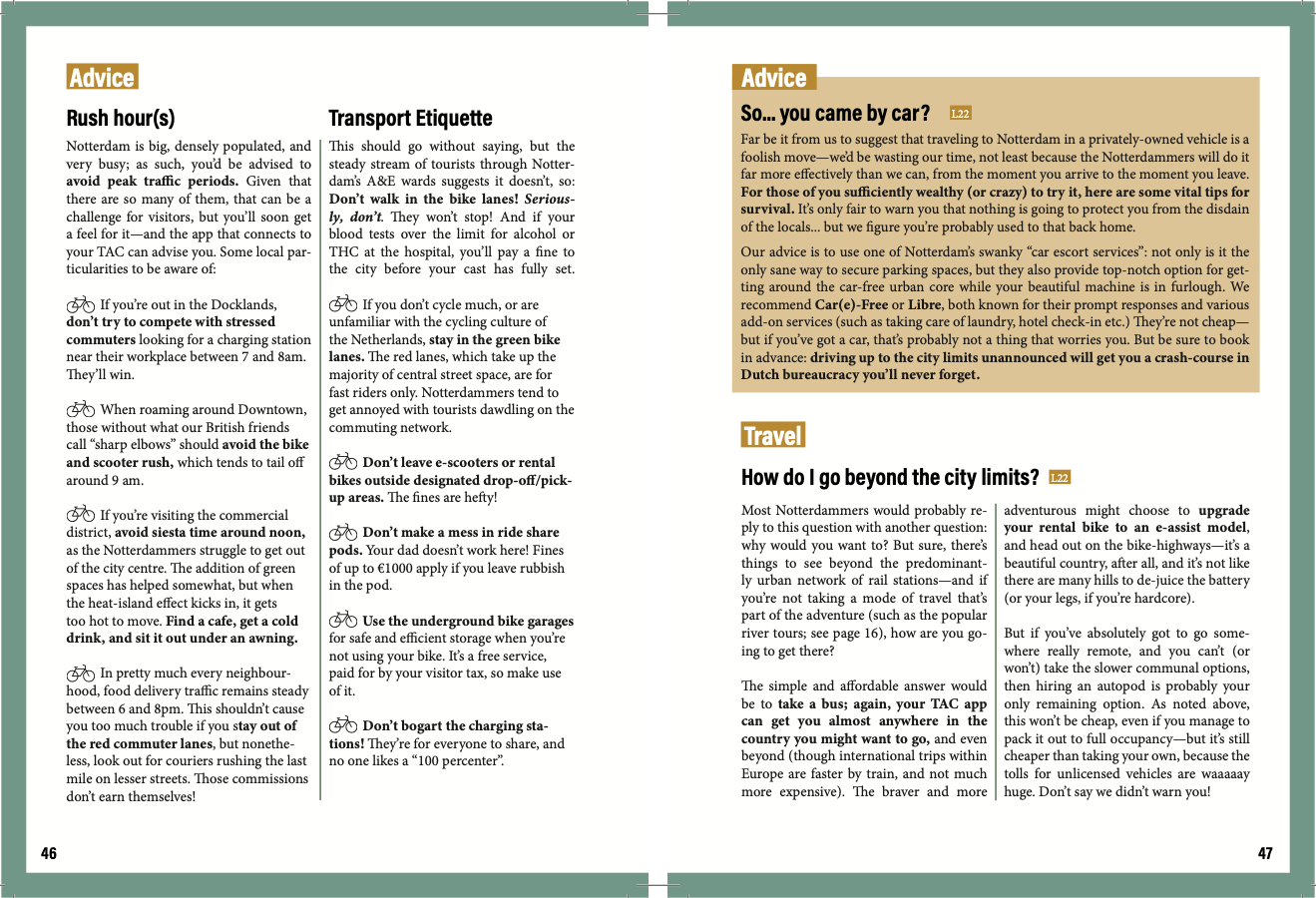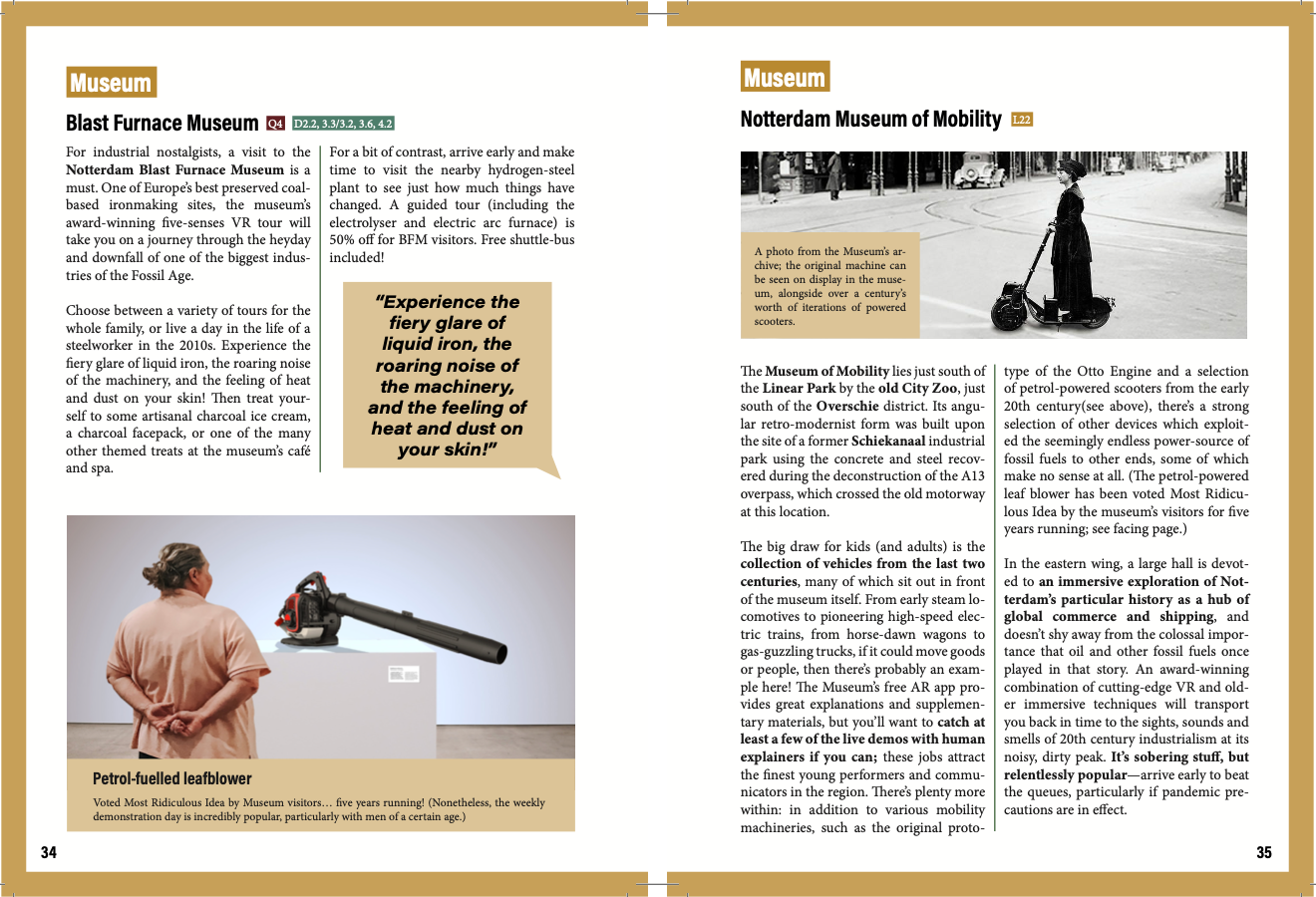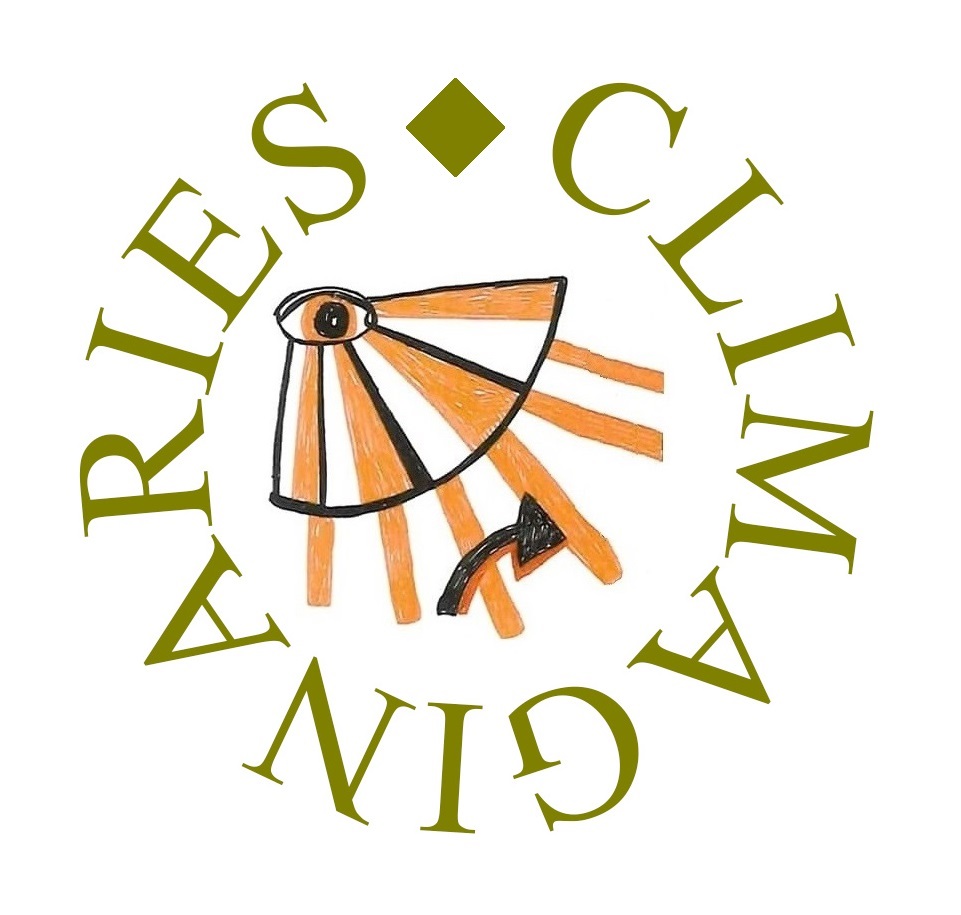This book is a tourist guide to an imagined coastal city in a decarbonised Europe circa 2045. We made it in order to communicate and explore the findings of REINVENT Decarbonisation, a Horizon2020-funded project aimed at exploring the possibilities for radically reducing the carbon footprint of basic industries such as steelmaking, plastics, meat and dairy farming, and pulp and paper production. As you will see when you click the link to the left, we went a little further, too. The Rough Planet Guide declines to answer the question of “how do we make the decarbonisation transition happen?”, in favour of the question “how might we live in a successfully decarbonised Europe?” Thinking through the polyphony of the latter sheds new light on the former, not least because it makes it clear that there is more than one pathway to a post-fossil Europe.
This book is not a prophecy or promise, but it is a possibility. This book is not optimistic, but it is hopeful. This book is a fiction… but it is built upon the best truths we could find.
Read the guide in its entirety by clicking here.
… and if you have questions, requests, praise/criticism please do contact our editor-in-chief Paul at paul.raven@svet.lu.se.
Why make a fictional travel guide?
That’s a good question, and one we’ve received quite often. In the guide (which you can find through this link) we’re written a lengthy section on why and how we produced the book. Also in that section are all the endnotes, the cold hard science that backs up the speculative stories contained in the guide. And so far, readers are enjoying it:
“Truly a visionary way to present research results. As a reader, you are swept directly into the future… [the Guide] provides a basis for the need for continued efforts from industry, the state and research, and inspires action.”
— Eva Blixt, Jernkontoret (Swedish steel-producer’s association)
Press coverage
Aftonbladet ‘Kan en bra berättelse rädda planeten?’, 22/11/2020 (In Swedish)
Tidningen Extrakt ‘Futuristisk reseguide visar hållbart Rotterdam’, 7/12/2020 (In Swedish)
Schyst Resande ‘Det kom en reseguide från framtiden’ 8/12/20 (In Swedish)
LUM. ‘Reseguide till framtiden’ 11/02/21 (In Swedish)
A few spreads to get you intrigued…



Acknowledgments
The content in this guide was a collaborative effort, we’d like to thank the think-tank LU Futura, researchers within the REINVENT-project, the Narrating Climate Futures network, the staff at Trivector, students at LUCSUS and Josefin Wangel from SLU Framtidslabbet for ideas, text and inspiration.


